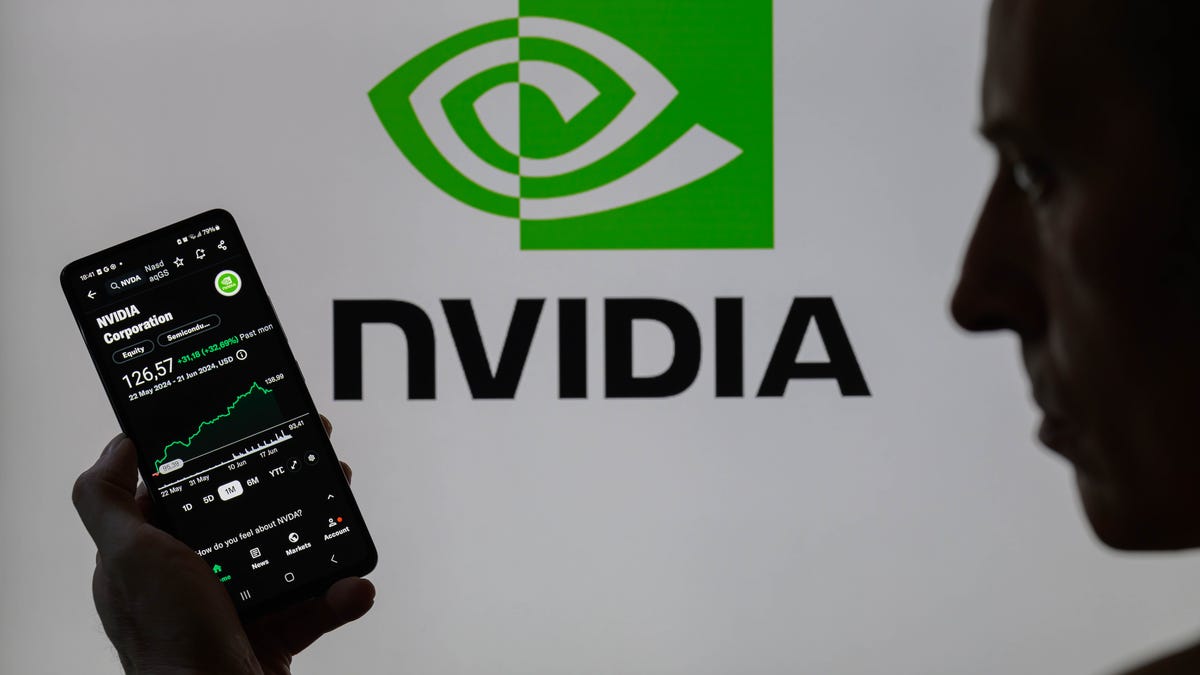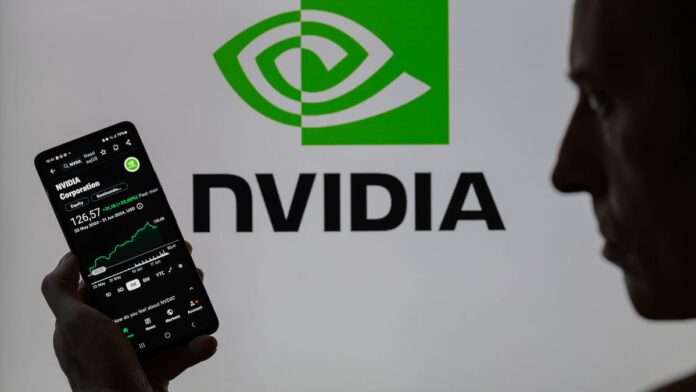## The Tech Titan Takes Back the Crown: Nvidia Races Past Apple in Market Value The tech landscape is constantly shifting, with companies vying for dominance in a fiercely competitive arena. Today, a new champion has emerged, dethroning the reigning king. Nvidia, the artificial intelligence powerhouse, has reclaimed its spot as the world’s most valuable company, surpassing even Apple in market capitalization.

Nvidia Back on Top: Why the Chipmaker’s Reign as World’s Most Valuable Company Isn’t Over Yet
Nvidia (NVDA) reclaimed its title as the world’s most valuable public company on Tuesday as Apple’s (AAPL) shares slid. The chipmaker’s stock was up about 2.4% during mid-day trading Tuesday, pushing its market cap to $3.45 trillion. Meanwhile, Apple saw its shares fall by almost 4%, landing its market cap at $3.33 trillion. The iPhone maker’s shares are down by more than 9% so far this year, while Nvidia’s shares are up 2%. This dramatic shift in market capitalization highlights the explosive growth of artificial intelligence (AI) and Nvidia’s dominant position in the market for GPUs, the specialized processors essential for training and running AI models.
The AI Boom and Nvidia’s Soaring Stock
Nvidia’s market cap surpassing both Apple and Microsoft is fueled by the burgeoning AI sector. Demand for Nvidia’s powerful GPUs, particularly its A100 and H100 series, has skyrocketed as companies across industries race to develop and deploy AI applications. These chips excel at the complex mathematical calculations required for training large language models, image recognition, and other AI tasks. As a result, Nvidia’s stock performance has been nothing short of remarkable, setting new records and propelling the company to unprecedented heights.
Morningpicker analysis suggests several factors contribute to Nvidia’s dominance in the AI chip market:
- Technological Superiority: Nvidia’s GPUs possess unmatched processing power and architecture optimized for AI workloads, giving them a clear edge over competitors.
- Strong Ecosystem: Nvidia has cultivated a thriving ecosystem of software developers, researchers, and hardware partners, fostering innovation and accelerating AI adoption.
- Early Mover Advantage: Nvidia’s early investment in AI research and development has positioned it as a leader in the field, allowing it to capture a significant market share.
Apple’s Slip: iPhone Sales Concerns and Regulatory Headwinds
While Nvidia soars, Apple faces growing challenges that have contributed to its recent market downturn. Jefferies (JEF) analysts downgraded Apple’s rating to “Underperform” in a note Tuesday morning, citing expectations of a miss for both fiscal first quarter results and guidance. The analysts cited weak iPhone sales expectations as the primary driver for the downgrade.
Specifically, Jefferies expressed concern about the iPhone 17 and 18, predicting weak sales due to limited hardware upgrades that may fail to entice consumers to upgrade.
Adding to Apple’s woes are antitrust concerns in the EU. The company is facing charges from European regulators for allegedly violating its Digital Markets Act. These regulatory headwinds could potentially impact Apple’s future business operations and profitability.
Furthermore, Morningpicker analysis reveals data suggesting iPhone shipments declined by around 4% year over year in the quarter ending in December. Jefferies, citing data from the International Data Corporation, also noted that iPhone sales in China—a crucial market for Apple—declined by a percentage in the “high teens” during that quarter. This decline in demand has prompted Jefferies to cut iPhone shipment growth expectations.
The Bubble Burst?: Nvidia’s Volatility and the Future of AI
Despite its remarkable run, Nvidia’s stock is not immune to market volatility. Recent data reveals a slight decline in Nvidia’s share price, raising questions about the sustainability of its meteoric rise. The company’s shares fell 6.7% Monday to around $118, dragging down the Nasdaq. While this dip may indicate a pause in the rally, it’s important to consider the broader context.
Morningpicker experts caution against prematurely declaring a bubble in the AI sector. While Nvidia’s stock has undoubtedly experienced significant growth, the underlying drivers of this growth—the rapid advancements in AI and the increasing demand for GPUs—remain strong.
However, some analysts argue that the market may be overestimating Nvidia’s future prospects. Concerns have been raised about the potential for a stock correction as AI hype subsides or if competitors manage to catch up.
Adding fuel to these concerns is the recent stock sale by Nvidia CEO Jensen Huang. He reportedly sold shares worth a total of about $95 million between June 13 and June 21. While such insider selling can sometimes signal a loss of confidence, it’s important to note that Huang still holds a significant stake in the company.
Nvidia’s history of defying market expectations suggests that it may be able to continue its growth trajectory. The company has a proven track record of innovation and adaptability, consistently delivering products that meet the evolving needs of the market.
Beyond the Numbers: Implications for Investors and the Tech Landscape
Nvidia’s market dominance has profound implications for the future of AI development. The company’s success underscores the crucial role that GPUs play in accelerating AI research and innovation. As AI continues to permeate various industries, the demand for Nvidia’s chips is likely to remain robust.
For investors, Nvidia’s performance presents both opportunities and risks. While the company’s stock is undoubtedly expensive, its growth potential remains significant. Investors who believe in the long-term prospects of AI should consider allocating a portion of their portfolio to Nvidia. However, it’s important to recognize the inherent volatility of the market and to manage risk accordingly.
Nvidia’s success has a broader impact on the tech industry and the global economy. The company’s dominance in AI hardware is shaping the landscape of technological innovation, driving advancements in fields such as healthcare, finance, and manufacturing. As AI becomes increasingly integrated into our lives, Nvidia is poised to play a pivotal role in shaping the future.
Conclusion
safe

